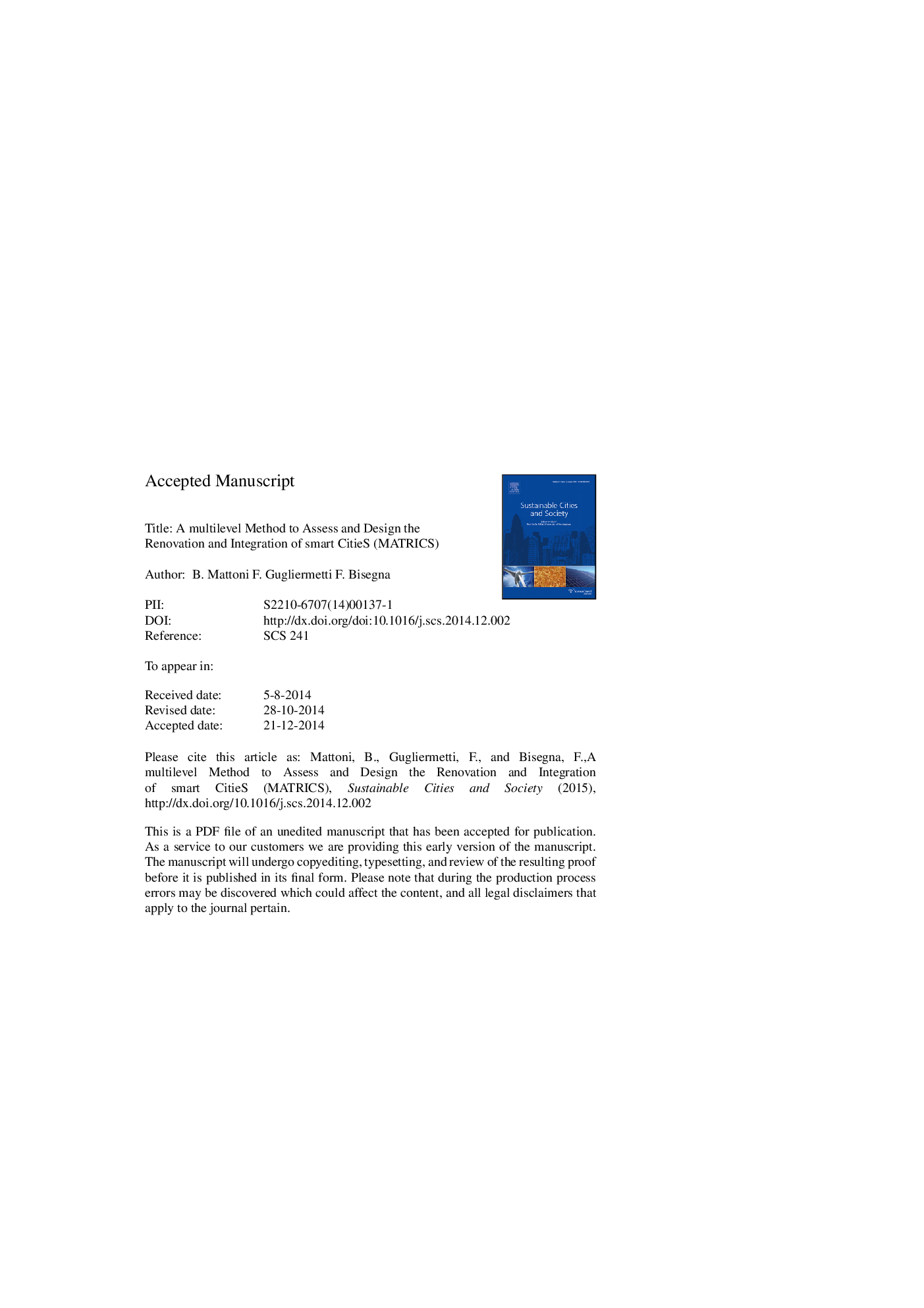| Article ID | Journal | Published Year | Pages | File Type |
|---|---|---|---|---|
| 6776475 | Sustainable Cities and Society | 2015 | 53 Pages |
Abstract
At today, there is absence of uniformity both in the definition and in the concept development of a Smart City, and there are not practical methodologies supporting the evaluation models developed in literature. The approach often does not appear as a holistic, complete and integrated, but as a combination of sector-based non communicating and non integrated actions. In this framework, the aim of this paper is to outline a planning methodology of actions to realize a Smart City that provides a holistic and specific approach to territories and cities by taking into account the specific features of the context and by developing different and appropriate strategies. According to this, a way to integrate the various aspects of a Smart City through the definition of the relations existing among all the subsystems of the city, considered as a whole (human) organism, has been developed.
Keywords
Related Topics
Physical Sciences and Engineering
Energy
Renewable Energy, Sustainability and the Environment
Authors
B. Mattoni, F. Gugliermetti, F. Bisegna,
